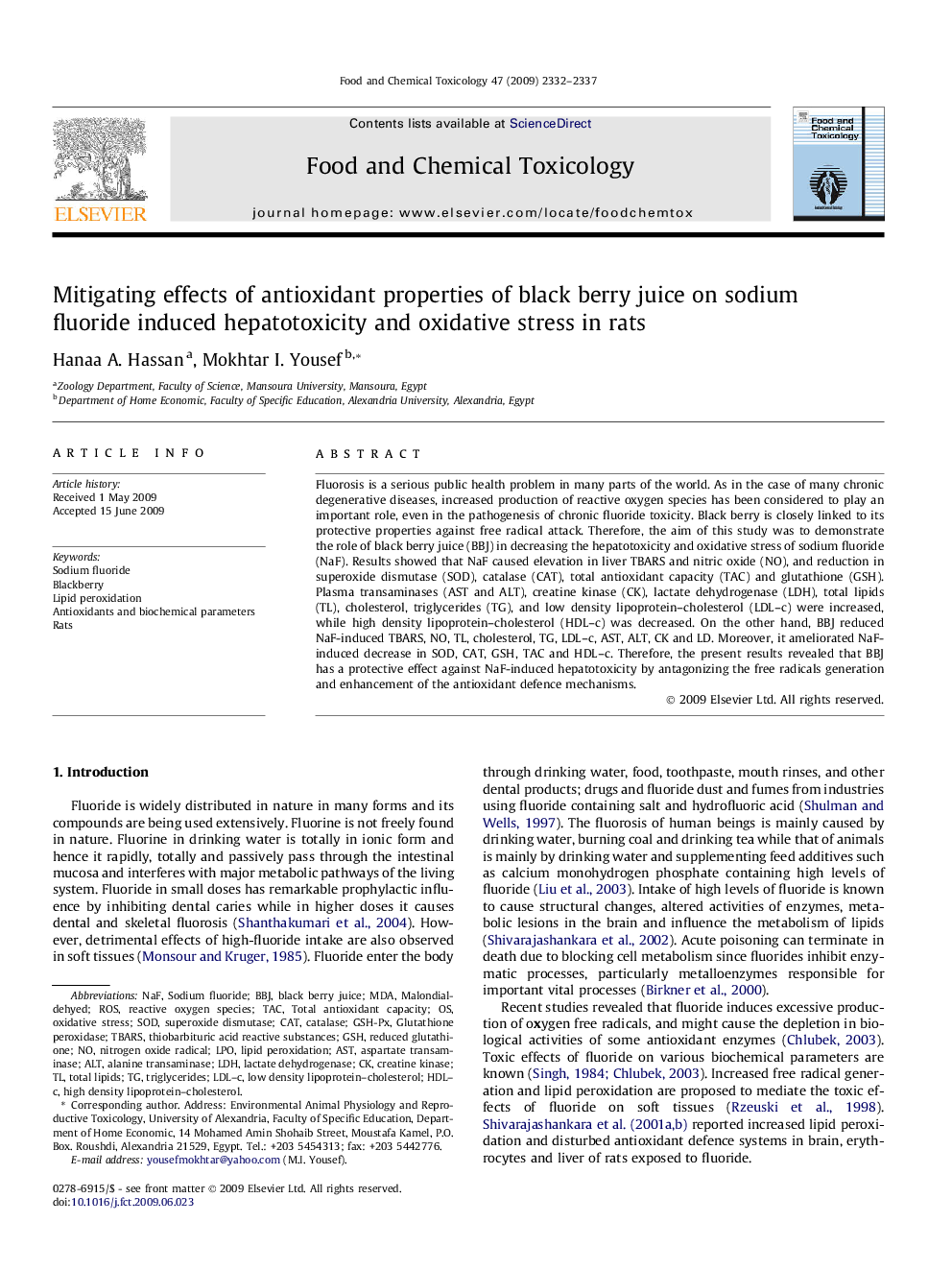| Article ID | Journal | Published Year | Pages | File Type |
|---|---|---|---|---|
| 2586125 | Food and Chemical Toxicology | 2009 | 6 Pages |
Fluorosis is a serious public health problem in many parts of the world. As in the case of many chronic degenerative diseases, increased production of reactive oxygen species has been considered to play an important role, even in the pathogenesis of chronic fluoride toxicity. Black berry is closely linked to its protective properties against free radical attack. Therefore, the aim of this study was to demonstrate the role of black berry juice (BBJ) in decreasing the hepatotoxicity and oxidative stress of sodium fluoride (NaF). Results showed that NaF caused elevation in liver TBARS and nitric oxide (NO), and reduction in superoxide dismutase (SOD), catalase (CAT), total antioxidant capacity (TAC) and glutathione (GSH). Plasma transaminases (AST and ALT), creatine kinase (CK), lactate dehydrogenase (LDH), total lipids (TL), cholesterol, triglycerides (TG), and low density lipoprotein–cholesterol (LDL–c) were increased, while high density lipoprotein–cholesterol (HDL–c) was decreased. On the other hand, BBJ reduced NaF-induced TBARS, NO, TL, cholesterol, TG, LDL–c, AST, ALT, CK and LD. Moreover, it ameliorated NaF-induced decrease in SOD, CAT, GSH, TAC and HDL–c. Therefore, the present results revealed that BBJ has a protective effect against NaF-induced hepatotoxicity by antagonizing the free radicals generation and enhancement of the antioxidant defence mechanisms.
